Year 3 Teaching Resources
Explore printable worksheets, digital activities, games and more Year 3 resources, all aligned to the Australian curriculum! The teacher-created resources have all been designed with primary teachers and students in mind to meet the special needs of children as they transition into the middle years of their primary school education.
Carefully curated and thoroughly reviewed by the expert teachers of the Teach Starter team to ensure they're classroom-ready, our Year 3 resources can save you lesson planning time this school year with editable and differentiated options at the ready.
Teach Starter’s Year 3 resources utilise a vast array of resource types and have something for every learning area. Here's just a taste of what you'll find for your classroom!
- Spelling words and English worksheets
- Fractions activities and Maths worksheets
- Social and emotional learning activities
- Narrative writing stimuli
- Language conventions practice
- And so much more!
Are you new to teaching Year 3? Here's a look at what this year of primary school is all about!
What Is Year 3 in Australia?
Year 3 sits right in the middle of primary school for most students in Australia as the fourth year of compulsory education.
How Old Are Kids in Year 3?
The exact age of students will vary slightly by state (and birthday!), but most children in your Year 3 class will be 8 to 9 years old.
What Do Students Learn in Year 3?
Year 3 is a big one for Australian students. Many will sit the NAPLAN tests, and more than a few will hit double digits before the year is through. This is a big year for Maths between the introduction of more complex fractions and formal multiplication, as well as even more skill-building in other learning areas.
Exactly what they're expected to learn will depend to some degree on the state or territory where you are teaching, but here's a look at what your students can expect to encounter in the key areas of the curriculum!
English
Year 3 students continue to develop their reading, writing, speaking, and listening skills in their English lessons. Reading will involve more complex texts, including longer novels, non-fiction texts, and poetry.
Students will also be expected to analyse these texts more deeply, examining themes, character development, and literary techniques. Comprehension skill-building will require deeper analysis of texts and drawing inferences from what is read.
While Year 2 instruction focuses on basic writing skills such as sentence structure and punctuation, this older group of students will move toward more advanced writing skills such as paragraphing, using descriptive language, and organising ideas in a logical way.
Grammar and spelling will also become a greater focus this year, with an emphasis on understanding and applying more complex grammar rules and spelling patterns.
Maths
Fractions feature front and centre of the Year 3 Maths curriculum. Students will learn to identify, compare, and order unit fractions (those being fractions with a numerator of 1), as well as use them in simple problem-solving contexts.
We already alluded to this being a big year for multiplication, and is it ever! Year 3 students learn the basic multiplication facts — such as 2 x 2 = 4 and 3 x 3 = 9 — and they begin to use these facts to solve multiplication and division problems. They also learn to interpret and create simple multiplication and division problems.
Students will have the chance to build upon their understanding of measurement concepts from Year 2, including length, mass, and capacity. They'll learn to measure and estimate using standard units, plus how to compare and order measurements.
Maths students will expand their knowledge of 2D shapes this year, and they will begin to learn about three-dimensional shapes and their properties.
Place value is still a big part of maths, of course. Year 3 students expand their understanding of place value to include numbers up to 10,000, and they learn to read, write, and compare four-digit numbers. They also learn to use place value to solve addition and subtraction problems.
Science
Science instruction in Year 3 is more focused on building a deeper understanding of scientific concepts and their applications, as compared to Year 2. It also emphasises the development of scientific inquiry skills that will help kids become more proficient in conducting scientific investigations and communicating their findings.
Students in Year 3 learn to ask questions, plan and conduct investigations, collect and record data, and communicate their findings as part of their development of science inquiry skills. They spend a portion of the year learning about the characteristics of living things, including plants and animals. Year 3 students will have the chance to explore the life cycles of plants and animals, as well as learning about the needs of living things and their habitats.
While they're learning about things that live on Earth, they're also learning about the planet itself, exploring geological features such as rocks, soil, and minerals. They also explore heat energy and how it can be transferred from one object to another.
Last, but certainly not least, Year 3 students learn about the properties and states of matter, including solids and liquids (gasses are explored later on in primary school).
Humanities and Social Sciences
Building on the foundation set in Year 2, Year 3 HAAS lessons build a deeper understanding of historical events and concepts, as well as exploring the social and economic systems that underpin Australian society.
Students learn about the historical events, people, and places that have shaped Australia's history. They explore the concept of change and continuity over time and learn to use historical sources to investigate the past. Students also study significant cultural events celebrated in our country and how they contribute to Australia's diversity and identity.
Geography instruction will guide students as they learn about the physical and cultural characteristics of places and regions. They'll learn more about the representation of Australia as states and territories, and as Countries/Places of First Nations Australians. Students will also begin exploring Australia's neighbours such as New Zealand, Papua New Guinea, and Indonesia.
Civics instruction sees Year 3 students strengthening their understanding of what it means to live in a democratic society. They will draw upon their own personal experiences to examine why rules are important and to discuss how they can be active participants in the communities to which they belong.
Health and Physical Education
With their bodies rapidly changing, Year 3 students learn about the factors that influence their health and wellbeing, including the importance of good nutrition, hygiene, and sleep. They also learn about social and emotional health, including how to manage their feelings, develop positive relationships, and make safe and healthy choices.
In Year 3, there are a number of different types of safety on tap in lessons, including road safety, water safety, and personal safety. They develop an understanding of risk and learn strategies for staying safe in different situations.
Year 3 students also learn about the importance of being active and informed citizens in their community. They learn about the benefits of volunteering and begin to develop an understanding of the responsibilities and rights of individuals in society.
The Arts
In Year 3, students develop more advanced skills in drawing, painting, and other visual arts techniques. This includes studying the elements of art — such as line, shape, colour, and texture — and beginning to use these to create more complex artworks.
In music class, these children are learning all about musical notation and how to read and write simple music, while drama instruction explores different forms of drama, including role-playing, improvisation, and scripted performance. Students get the chance to learn about the elements of drama, such as character, plot, and setting, and begin to use these to create their own dramatic works.
- Plus Plan
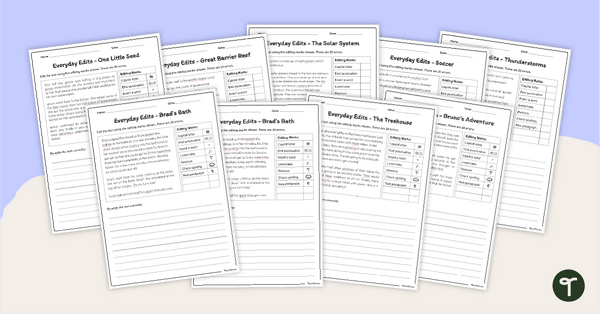
18 Editing Worksheets - Spelling, Grammar and Punctuation
Twenty editing worksheets for spelling, grammar and punctuation.
- Plus Plan
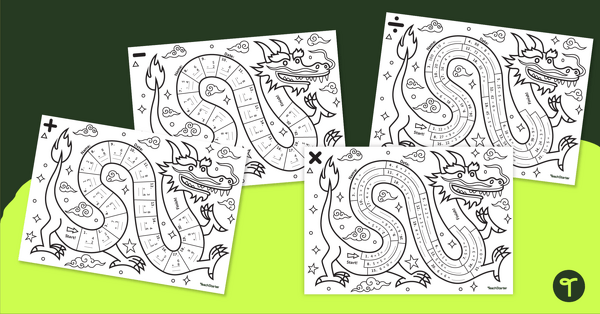
Dominate the Dragon – Mental Maths Worksheets
Capture your students' interest in maths drills for all four operations with these fun dragon-themed differentiated maths worksheets.
- Free Plan
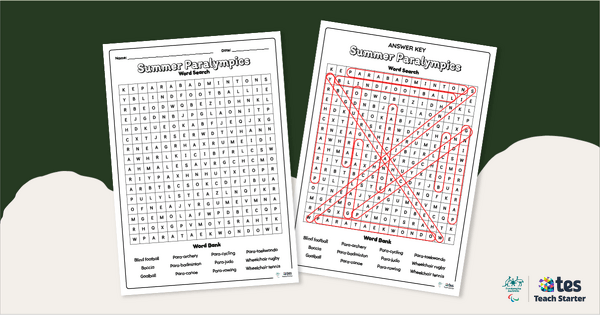
Summer Paralympics Word Search - Upper Years
Introduce the events held during the Paralympic Games with our summer sports word search for older students.
- Plus Plan
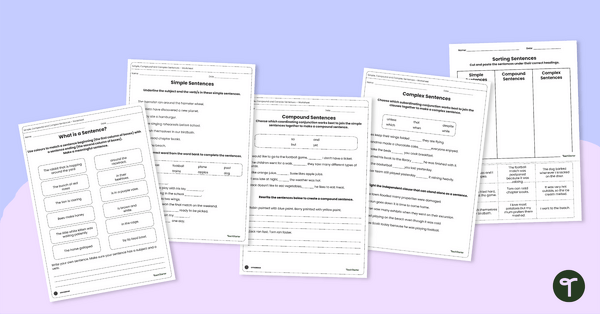
Simple, Compound and Complex Sentences Worksheets
Use this set of five grammar worksheets to teach about the structures of simple, compound and complex sentences.
- Free Plan
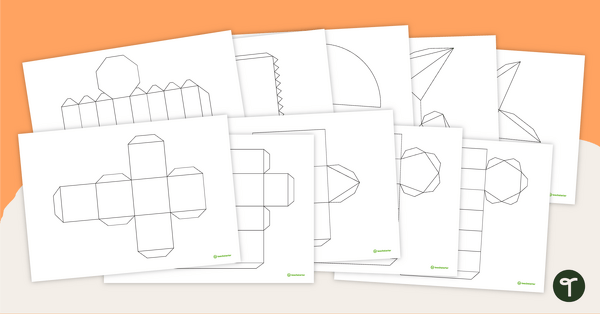
Nets of 3D Objects
Create a variety of 3D shapes with this comprehensive set of net templates.
- Free Plan
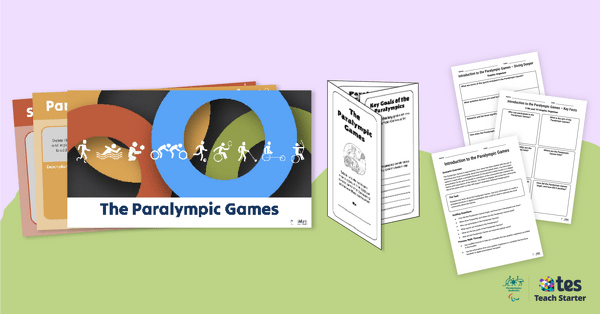
Introduction to the Paralympic Games - Inquiry-Based Project
Introduce your students to the key components of the Paralympic Games with this inquiry-based learning project.
- Plus Plan
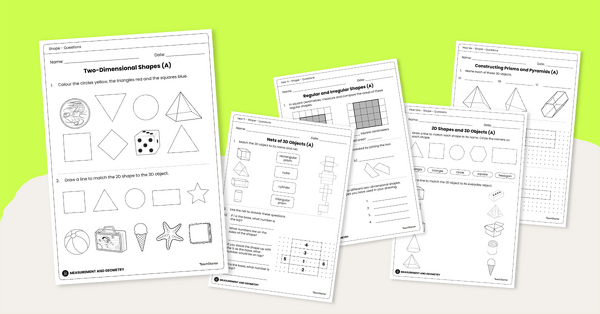
Shape Worksheet Sets (Foundation to Grade 6 Level)
Use these levelled worksheets sets with your primary school students to explore 2D shapes and 3D objects!
- Plus Plan
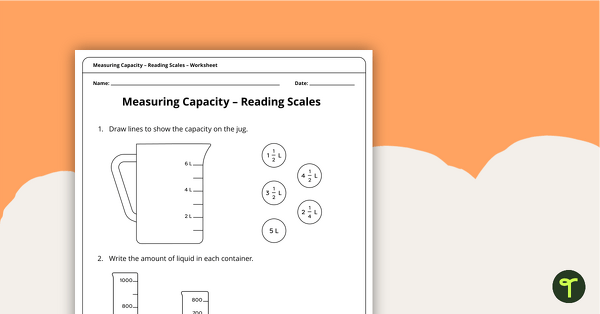
Measuring Capacity – Reading Scales Worksheet
Use this capacity worksheet to give students practice at reading scales on containers to measure capacity.
- Free Plan
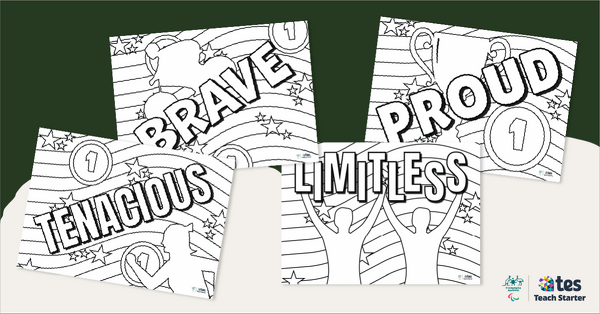
Paralympic Values Colouring Sheets
Introduce your students to the core values of the Paralympics with these Paralympic values colouring sheets.
- Plus Plan
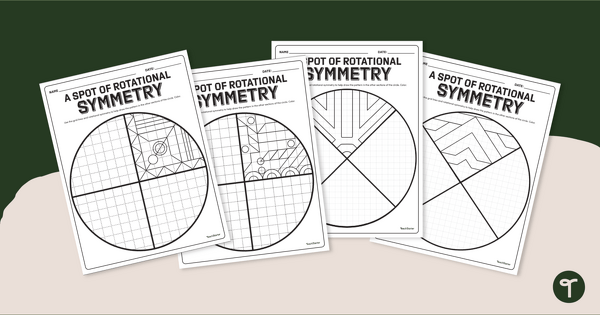
Exploring Rotational Symmetry Worksheets - Drawing Prompts
Encourage creativity and practice knowledge of rotational symmetry with a set of exciting symmetry drawing worksheets.
- Free Plan
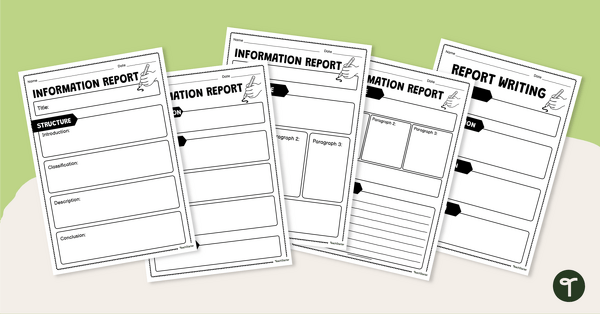
Information Report Graphic Organisers
Get your students to plan and write information reports with this set of 6 differentiated graphic organisers.
- Plus Plan
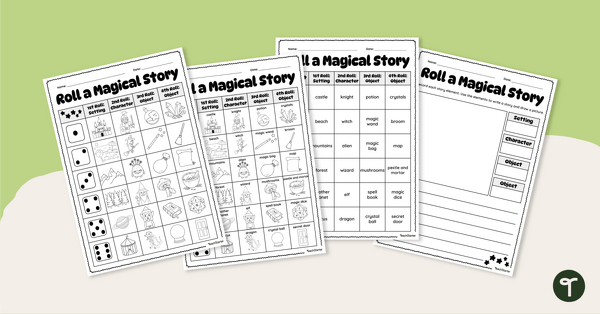
Roll to Create a Magical Story – Dice Game
Get your students writing magical stories during Book Week 2024 with this engaging and interactive “Roll to Create” dice game.
- Free Plan
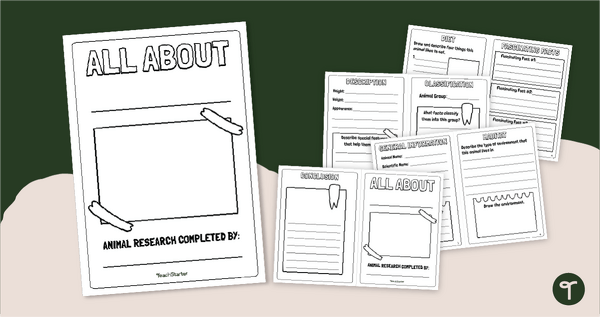
Animal Research Project - Informative Writing Booklet
Use a printable animal research organiser booklet for students to record facts about animals when learning to write informative texts.
- Plus Plan
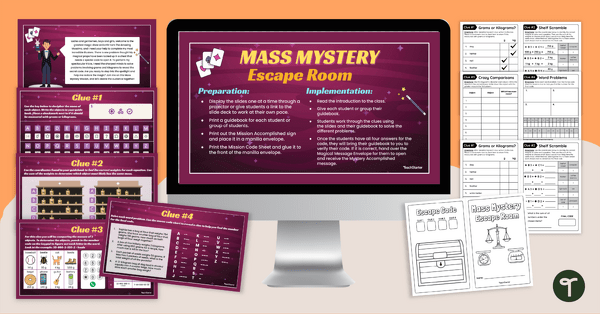
Mass Mystery Escape Room
Explore the different elements of mass with this super fun and engaging escape room resource.
- Plus Plan
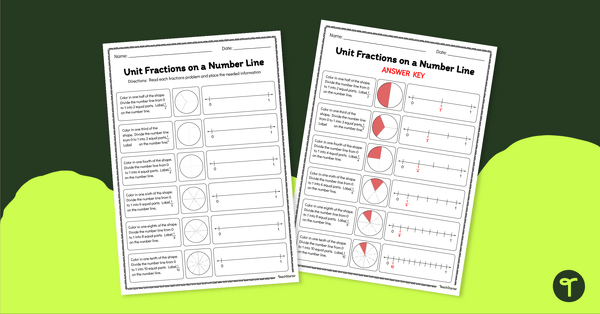
Unit Fractions on a Number Line Worksheet
Consolidate students' knowledge of unit fractions using this fractions on a number line worksheet.
- Free Plan
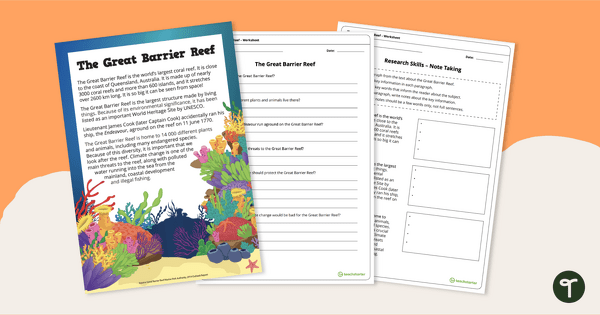
Great Barrier Reef Comprehension and Note Taking Worksheet
Learn about The Great Barrier Reef with a reading comprehension and note-taking activity.
- Free Plan
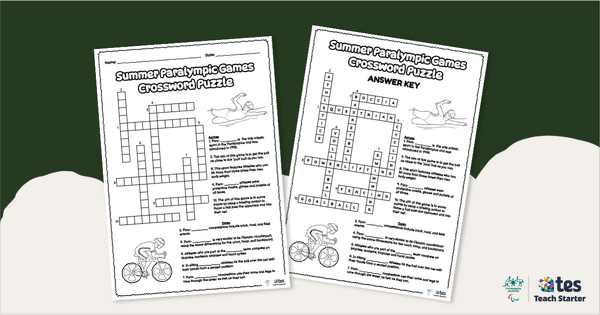
Summer Paralympic Games Crossword Puzzle
Boost vocabulary skills with a printable Paralympic Sport Crossword Puzzle.
- Plus Plan
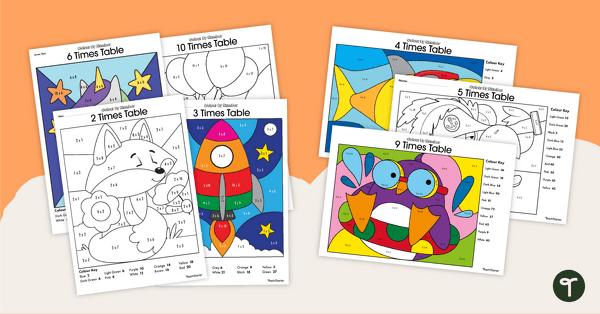
Multiplication Colour By Number Worksheet Pack
Use this set of multiplication colour-by-number worksheets to help your students learn these important number facts.
- Plus Plan
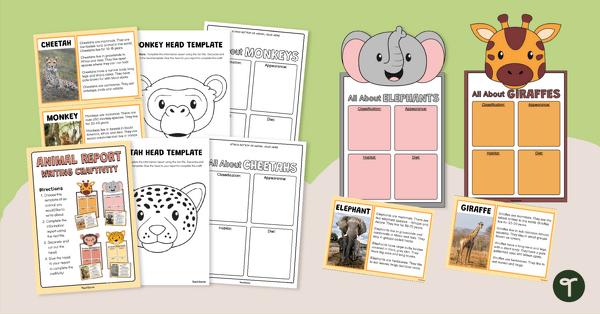
Animal Information Report – Writing Craftivity
Use this animal-themed writing and craft activity to teach your early years students about informative writing.
- Plus Plan
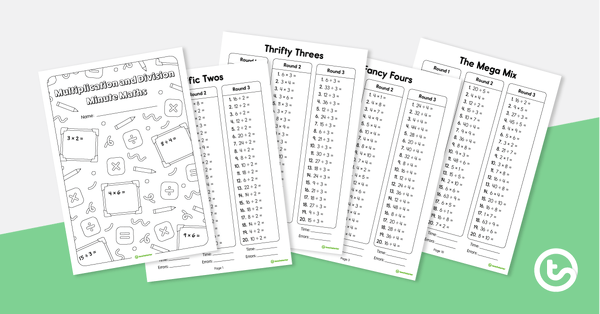
Multiplication and Division Minute Maths Booklet
A maths mentals booklet with ten pages of multiplication and division questions.
- Plus Plan
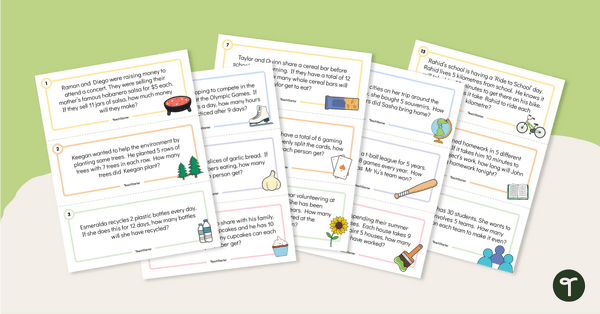
Multiplication and Division Word Problems Task Cards (Facts of 2, 5 and 10)
Use a range of strategies to solve multiplication and division problems with 2, 5 and 10 times tables.
- Plus Plan
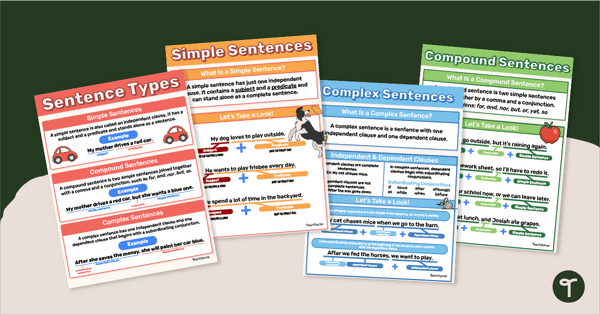
Simple, Compound and Complex Sentences Posters
Use these posters to show your students the attributes that make up simple, compound and complex sentences.
- Plus Plan
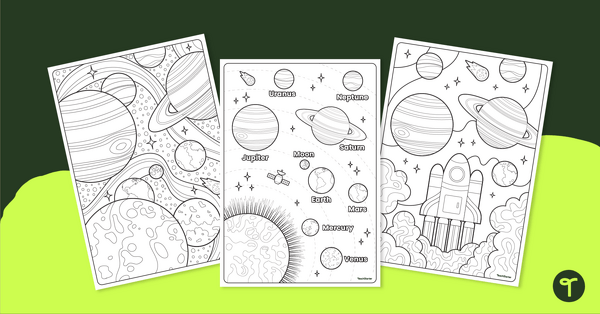
Mindfulness Planet Colouring Pages
Get mindful with this set of planet-themed mindful colouring sheets.
- Free Plan
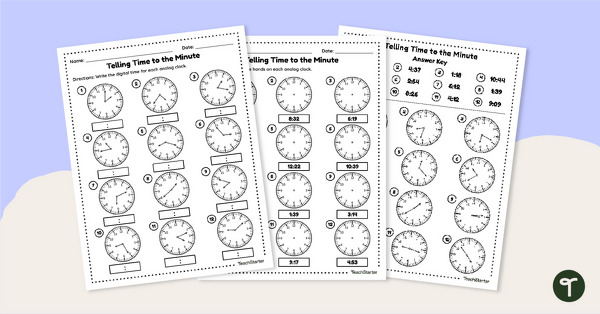
Free Telling Time to the Minute Worksheets
A worksheet for telling time to the minute and converting between analogue and digital times.
- Plus Plan
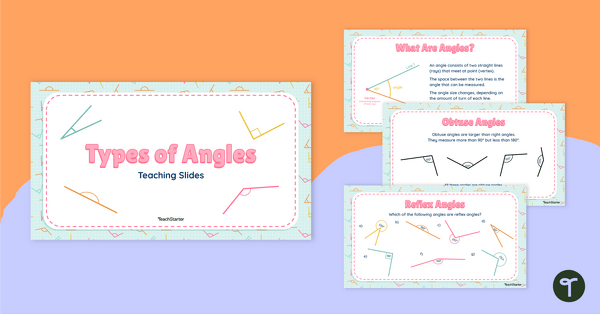
Types of Angles Teaching Slides
Teach your students about the six main angle types with this teaching presentation perfect for primary school maths lessons.
- Plus Plan
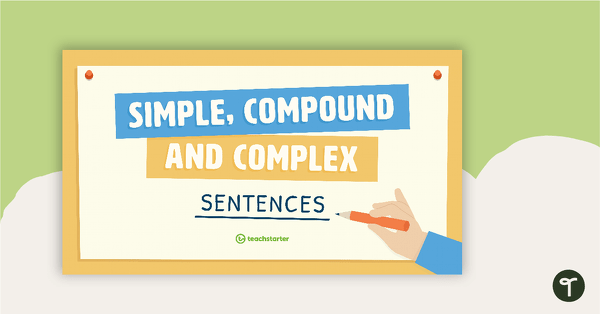
Simple, Compound and Complex Sentences PowerPoint
A 23 slide editable PowerPoint template which introduces the attributes of simple, compound and complex sentences.
- Free Plan
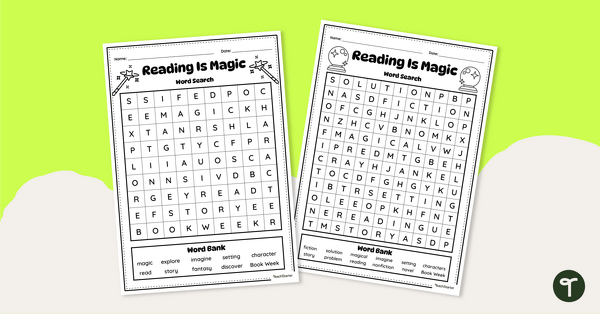
Reading Is Magic! Word Search
Download this differentiated Book Week word search based on the 2024 theme, “Reading Is Magic”.
- Plus Plan
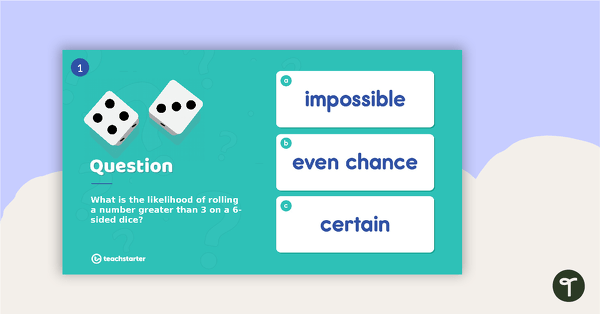
Chance Middle Years PowerPoint
An engaging 36 slide interactive PowerPoint to use in the classroom when learning about chance in the middle years.
- Plus Plan
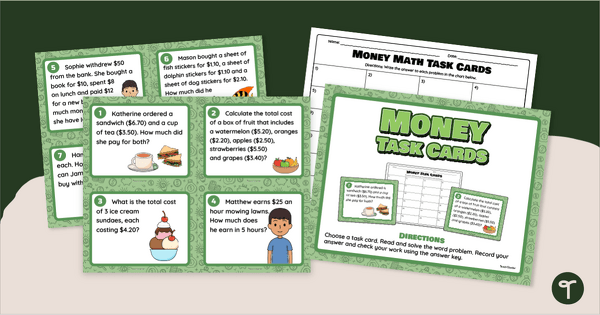
Money Task Cards - Multi-Step Word Problems
Practise solving money word problems with a printable set of multi-step word problem task cards.
- Plus Plan
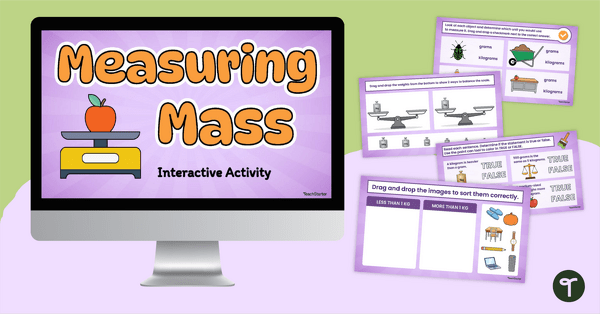
Measuring Mass Digital Learning Activity
Practise measuring mass with this fun and engaging digital learning slide deck.
- Free Plan
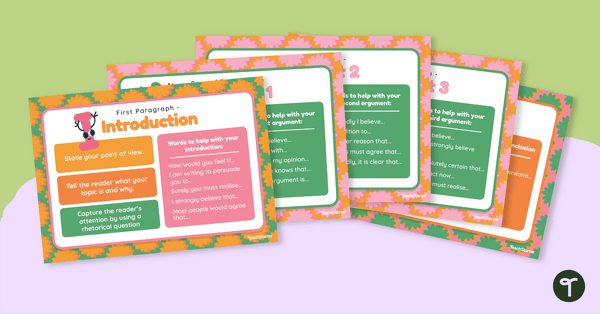
Persuasive Text Structure Posters
Explore the structure of persuasive writing with this set of 15 posters.
- Plus Plan
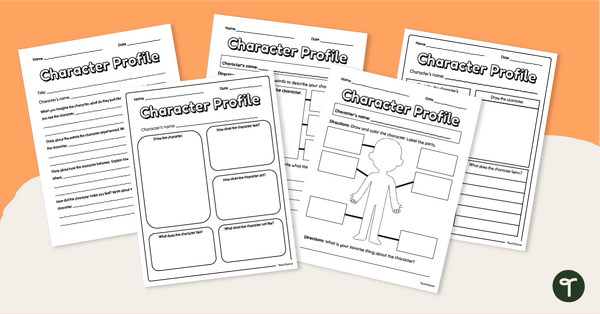
Character Profile Template Pack
Explore the personality, appearance, feelings and actions of a character from a narrative with this printable character profile templates.